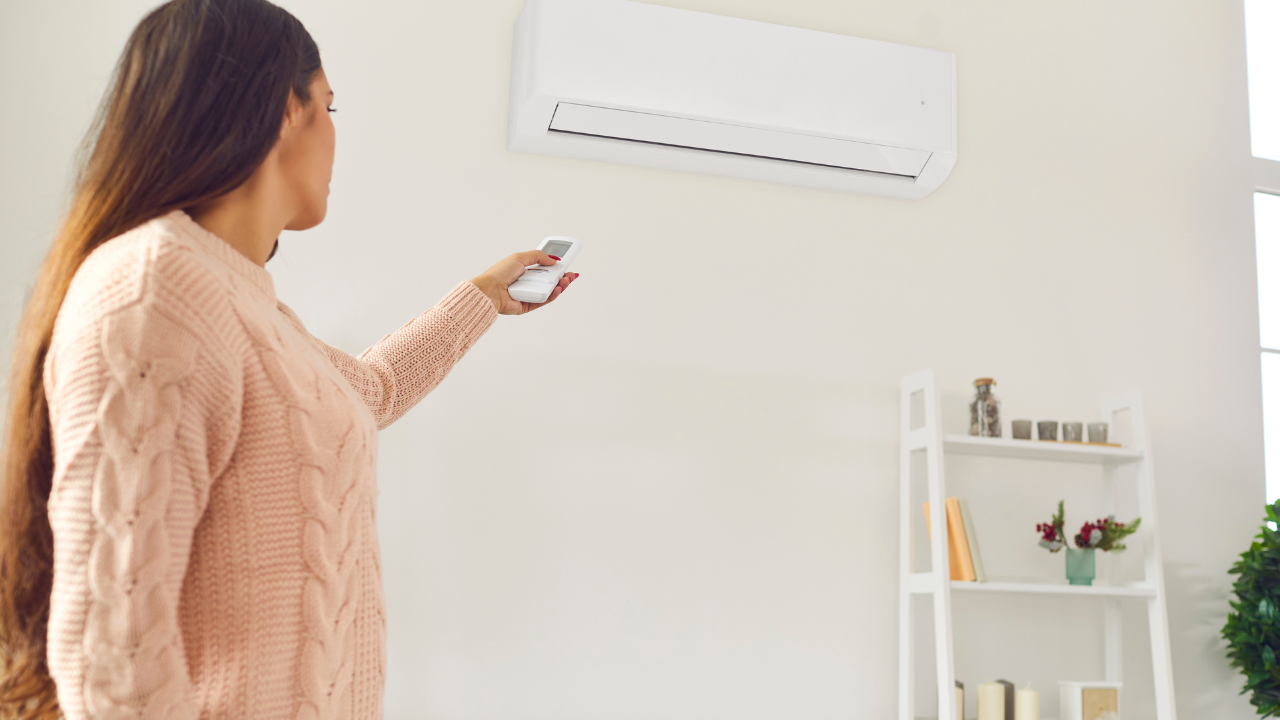What is the heat pump and how does it work?
The heat pump is a heat generator, which uses the heat present in nature (air, water or soil) for heating, cooling and, in some cases, also for the production of domestic hot water. Without going into an excess of technicalities, the machine serves, in a nutshell, to transfer thermal energy from a warmer environment to a colder one by means of an evaporator, a compressor, a condenser, an expansion valve and a refrigerant fluid. To do this, it uses electricity and no type of fossil fuel, which is why it can be considered a sustainable choice for the environment, which also guarantees some economic savings, as we will see better later. Thanks to the energy efficiency results that heat pumps guarantee, there are tax breaks for the purchase of these products.
Types of heat pumps
As we have seen, the heat pump can take thermal energy from different sources, which is why there are different types:
- Air-to-air heat pump, which transfers the thermal energy of the external air to the internal air, both for heating and for cooling.
- Air-water heat pump, which uses the thermal energy of the air to heat the system water.
- Water-to-water heat pump, which uses the thermal energy of groundwater.
- Geothermal heat pump, which uses the thermal energy of the soil.
Choose from air conditioners fixed which stand out for their advanced functionality and design.
Air-water heat pump for winter heating
To heat the rooms, the air-water heat pump draws thermal energy from the outside air and transfers it to the water in the heating system and to the domestic hot water system. For cooling, it works like our refrigerator: it takes the heat from the inside and disperses it to the outside. For the process to be effective, it is necessary to size the system appropriately, determining the heat requirement of the home and also taking into account external factors, such as the geographical area in which it is located , the characteristics of the building and the level of thermal insulation.
Air-to-air heat pump for winter heating
The air-to-air heat pumps, which are by far the most common, are nothing more than those devices that we commonly call air conditioners. If on the one hand the air conditioner limits itself to modifying the air temperature, without being able to intervene on other properties, the heat pump air conditioner allows you to have total control over the temperature, both in heating and in cooling, but also humidity , fan speed and air purification.
What is the difference between air conditioning and heat pump?
The machine we use to cool rooms is commonly identified with "air conditioning", while the heat pump is used to heat them. In reality it is necessary to clarify:
- The air conditioner acts to lower the temperature, regulate humidity and eliminate impurities from the environment. If it is a heat pump air conditioner , it means that it can also heat, subtracting heat from the outside air to conduct it towards the inside;
- The air conditioner is a machine that also allows you to heat or cool the room, but you cannot define the temperature nor can you act on the quality of the air, for example by decreasing the temperature. 'humidity;
- The air-water heat pump is a device that serves to power the heating system, the domestic hot water system and which can also provide for the cooling of the house. It consists of two units, one external and one internal, however there are so-called monobloc solutions, ie without an external unit.
Thanks to the air-water heat pump it is possible to abandon the use of fossil fuels to meet all those needs met by a traditional gas boiler. In this way, there will be a significant reduction in overall energy consumption, while at the same time reducing CO2 emissions released into the environment.
Why should you install a heat pump?
The installation of a heat pump has affordable prices, which vary according to the technical characteristics of the appliance, such as the energy class or the power of the machine.
Furthermore, if you combine photovoltaic and heat pump, the advantages increase considerably. The heat pump, in fact, can be partially or totally powered by the energy produced by the photovoltaic system, maximizing the savings on the bill.
Savings and consumption of the heat pump for heating
In evaluating the convenience of the heat pump for winter heating, it is good to refer to the seasonal coefficient of performance (SCOP), i.e. the ratio between the thermal energy supplied to the environment and the electricity consumed. The higher this value is, the more efficient the machine is and therefore reduces the consumption of electricity. The SCOP coefficient of performance is measured in certain operating conditions, including the outside air temperature: the lower the outside temperature, the more the SCOP worsens, which is why in locations with a particularly harsh winter climate, the performance of the heat can be significantly reduced. Class A + heat pumps have a SCOP greater than or equal to 4 (and less than 4.6). That is, for 1 kWh of electricity consumed, the heat pump will return at least 4 kWh of thermal energy to the environment. To realize how efficient these machines are, just think that a traditional boiler powered by methane gas absorbs an average of 1 kWh of energy to produce 0.9 kWh of thermal energy. Heat pumps therefore ensure much better energy performance than a methane boiler, absorbing less energy to do the same job. Thanks to the performances described above, a heat pump heating system allows an average saving of 45% compared to the costs incurred by gas heating.
The savings can be further increased if a photovoltaic system is available. In this way, part or all of the electricity consumed by the heat pumps can be made available by the system itself, thus avoiding the purchase of electricity from your supplier.
Heat pump incentives 2022
The Budget Law 2022 confirmed a series of incentives for the purchase and installation of heat pump systems, even without carrying out other renovations, carried out by 31 December 2024.
These are tax deductions aimed at those who, through the interventions, increase the level of efficiency of the building.
The deduction percentage varies according to the type of intervention:
- for the purchase of heat pump air conditioners carried out in the context of construction and renovation works, there is a deduction of 50% (Building Restructuring Bonus);
- for the purchase of high efficiency heat pump air conditioners to replace the old system there is a deduction of 65% (Ecobonus);
- for the purchase of heat pump air conditioners carried out in the context of driving interventions, it is part of the so-called Superbonus 110%, if certain technical requirements are met, for details it is possible to consult the Agenzia delle Entrate website.
To access the deductions it is necessary to have specific documentation to be presented , as well as having all the requisites required by the regulations. All the details are available on the website of the Agenzia delle Entrate.
Is it possible to use only electricity for your home?
With Enel Flex's flexibility , yes it is: Enel Energia's new offer that adapts to market changes. Plus, get discounts and bonuses with ENELPREMIA WOW! and the Web Bill is already included.

Enel Flex
The flexible offer that adapts to market changes
The origin of energy from renewable sources is certified through the GSE guarantee of origin system



